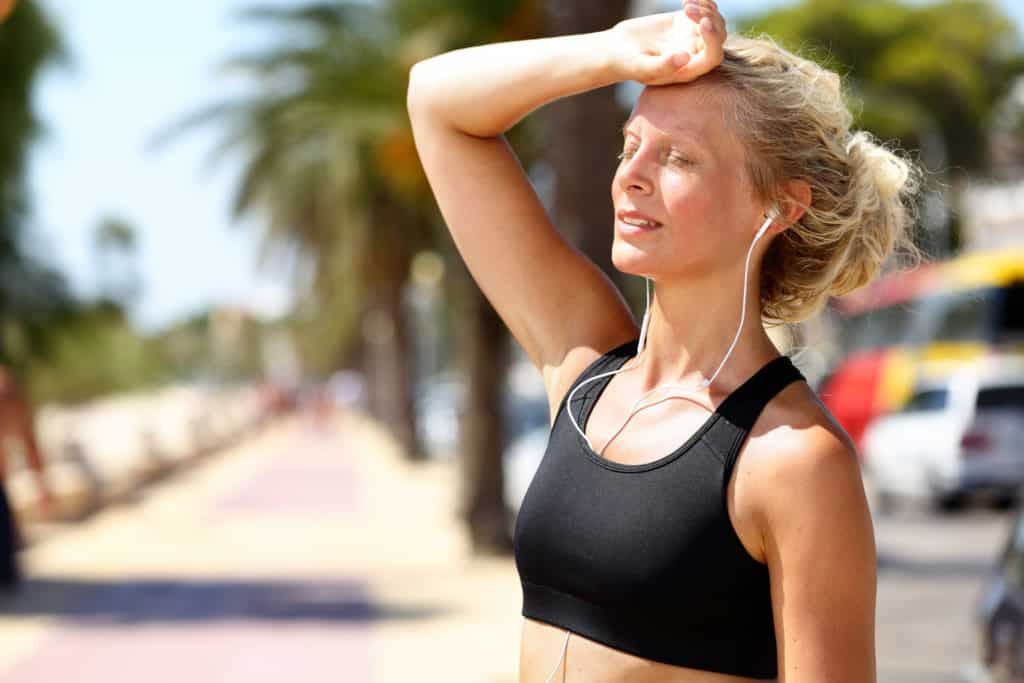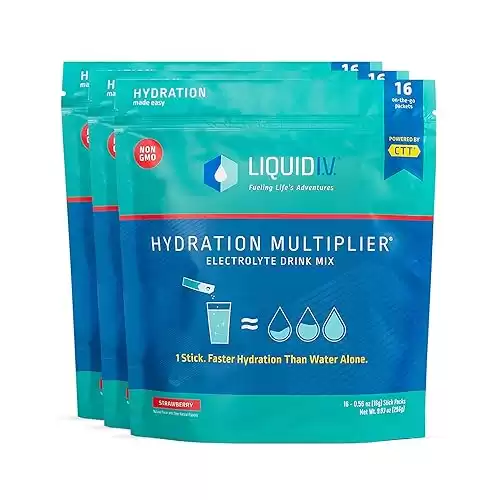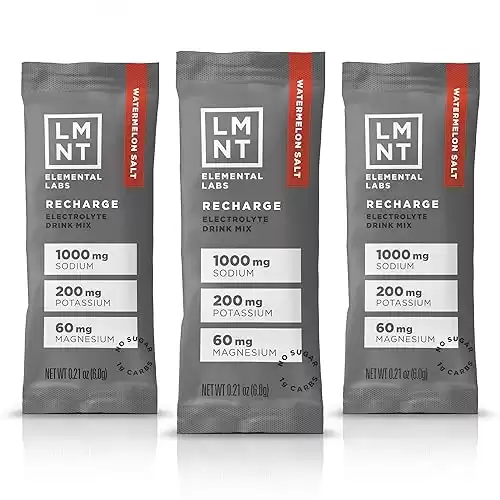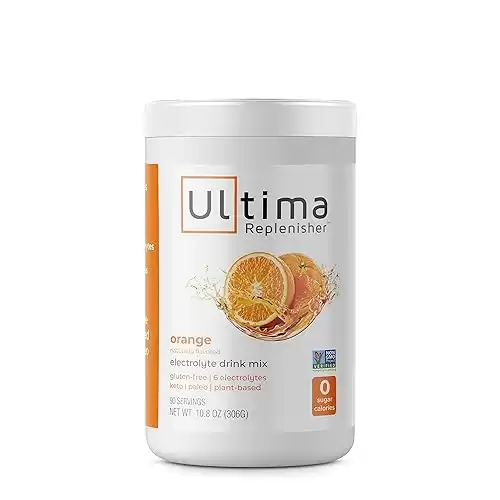Best Tips to Avoid a Dehydration Headache

It is never a pleasant experience when it seems like Thor’s hammer is making a dent in your brain. You can’t effectively continue your day because the pain will weigh you down.
What could be happening?
If you’ve not drank water in a while, you may be experiencing a dehydration headache. While you can do something to ease the pain and headache, it’s always better to avoid it.
As with everything health-related, it’s always better to prevent illnesses than cure them. And that’s why we wrote this guide to help you avoid dehydration headaches.
Use the following tips, so you have a clear head and function optimally at all times.
Table of Contents
Tips to Avoid Dehydration Headaches
These are at-home solutions to dehydration headaches.
Drink Water Regularly
There is no better way to prevent dehydration headaches than drinking water and consuming electrolytes. Electrolytes push water into our cells in order to be properly hydrated and not just full of water. Most people do not consume enough vitamins and minerals (including electrolytes). When your body doesn’t have enough fluids to keep it going, it sends a message to the brain, and headache tantrums begin. You can prevent this from happening by drinking water regularly. Notice we’re not saying ‘fluid’ or ‘liquid’?
Drinking other fluids like energy drinks, soda, or carbonated drinks is not the best option. If it’s not water, it is not water. Besides, these drinks have high sugar content or contain preservatives; drinking them in place of water will cause other issues.
Away from that, when you drink water, take it slowly. Don’t gulp or rush it or drink too much at a time. That could lead to other problems.
Reduce Physical Activity
Physical activity has been linked to dehydration. Physical activity has been linked to dehydration. As you exercise, you consume more water. The exercise here means regular activities like walking, talking, stretching, singing, or moderate to high-intensity activities like mowing the lawn, bicycling, or hiking.
If you don’t have water handy to replenish what is lost, you might want to slow down on those activities. Continuing will make you need water, and if you can’t get any, dehydration headaches might set in. So, take a break or reduce physical activities, especially when you don’t have water to drink.
Don’t Stay Long in the Sun
Sunlight is good for many things, including supporting bone health, production of Vitamin D, and promoting mental health. Sunlight can also make you sweat more, losing more water and electrolytes faster than you usually would.
Avoid direct sunlight for extended periods if you want to prevent dehydration, which leads to dehydration headaches. And if you can’t possibly do that, take a bottle of water with you or wear a hat to reduce the intensity of the heat. But if you start feeling dehydration symptoms, get away from the sun and rest under a cool shade.
Carry a Reusable Water Bottle
One way to ensure you easily access water is by taking a reusable water bottle with you. It may not be a popular thing to do, but it is ideal for preventing dehydration. You can always refill them with water wherever you go and stay hydrated.
Avoid using single-use plastic bottles for water refills. These bottles can hold water you can use (when new), but water quality reduces after first use. The plastic is made with chemicals, and these disposable bottles leach toxins when they become old or damaged. So, choose reusable water bottles for water; they’re also safer for the environment.
Supplement With Electrolytes
Unfortunately, our diets are not as rich in vitamins and minerals as they once were. In addition, in America, the food quality is compromised for mass production and high profits. This leads to a major issue of deficiencies and causes an increased need for supplementation.
Electrolyte supplements include the following minerals:
- Sodium
- Calcium
- Potassium
- Chloride
- Phosphate
- Magnesium
Look for organic and non-GMO sources if they are combined with vitamin c as well.
| Product Image | Product Name / Primary Rating / Price | Primary Button |
|---|---|---|
|
Eat Water-Rich Foods
Apart from drinking water and eating regular food, you can eat water-rich foods to help avoid dehydration and dehydration headaches. These foods will naturally supply your body with a healthy dose of water because of their high water content. They also contain vitamins that help improve hydration. Some water-rich foods to eat are:
- Cucumbers
- Tomatoes
- Watermelon
- Spinach
- Peaches
- Broccoli
- Zucchini
- Radish
- Apple
If you want to keep a hydration routine effectively, consider throwing some of these foods into your daily diet. You will benefit from the water content and other nutrients found in these foods.
Eat Electrolyte-Rich Foods
Electrolytes play a crucial role in metabolic functions in the body, as they help cells regulate the flow of fluids. Cells in the body also use electrolytes to maintain the right water levels. Furthermore, as water levels deplete in your body, so do electrolytes, and you have to ensure an electrolyte balance as you rehydrate.
Taking electrolyte-rich foods is the best and most natural way to maintain that balance. Foods like watermelon, milk, smoothies, and coconut water are ideal. Try to avoid sports drinks like Gatorade and other artificial electrolyte drinks. They’re high in sugar and calories and contain additives; they’re also addictive.
Avoid Food Sensitivities
Food sensitivities can cause digestive upset and diarrhea in particular, which causes loss of fluids and electrolytes. Water and electrolytes are absorbed in the small and large intestines and gut problems can lead to a lack of absorption of these nutrients. Hence leading to further dehydration and increasing your chances of suffering from a dehydration headache.
To figure out if you are sensitive to certain foods, taking a food sensitivity test is a great way to find what foods may be disrupting your body’s normal function.
How to Know When to Rehydrate to Avoid Dehydration Headaches
Sometimes we get so caught up with activities that we forget to drink water and eat water or electrolyte-rich foods. Use the following pointers to decide the appropriate time to get a refill.
You’ve Had Long Heat Exposure
If you’ve spent a few hours in the sun, you are getting dehydrated if you’re not already. We’ve established that heat exposure leads to faster water loss, so you might want to drink water as soon as possible. If you don’t, your body will eventually start nagging at you, and you won’t like the symptoms.
You’ve Exercised Longer Than 30-45 Minutes
Every exercise will make you lose water quickly, and so you should have water close by to rehydrate after every few sets. Don’t wait until the end of the routine or when your brain starts sending the message that you need to drink water. Drink some water after, say, 30 minutes to an hour into your exercise.
You Are a Heavy Sweater
Some people sweat more than others, and if you’re one of those, you may need to drink water more often. And the reason is simple; your body needs to replace the water and electrolytes lost through your sweating. Take a reusable water bottle with you and sip from time to time. You won’t get dehydrated.
Last Words
Dehydration headaches are real and are an offshoot of dehydration, but you don’t have to experience the pain since you can prevent it. Follow the tips in this guide to avoid dehydration headaches, and you’ll be fine.
Originally posted 2022-06-08 20:00:52.
Megan Santiago
Latest posts by Megan Santiago (see all)
- How to Find a Trauma Therapist in Tampa - September 30, 2024
- Get Your Child to Listen: A Clear-Cut Way To Feel Heard - March 10, 2024
- Help With Bills – How to Get Financial Assistance - March 10, 2024



